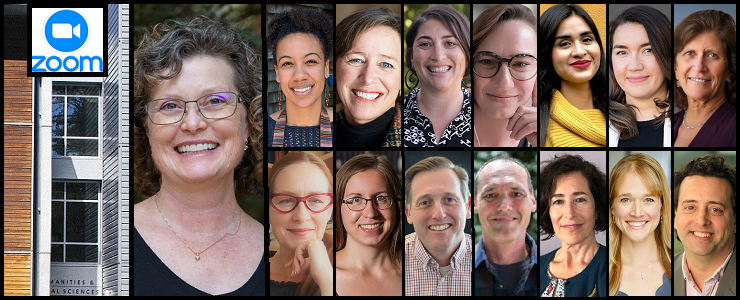Communication Certificate Program
FRIDAYS, FALL QUARTER
Humanities (2) and Social Sciences Building, Room 259 (all Fridays except November 3)
Kerr Hall, Room 61 (November 3)
Zoom
The Division of Graduate Studies offers graduate students a Professional Communication Certificate Program (GSPCCP or PCCP), consisting of a sequence of classes on how to communicate effectively in one’s academic discipline and profession, use technology tools to enhance communication, improve job prospects, and build a professional network. The program takes place every Friday of fall quarter, 1:00–4:30 p.m. Pacific Time, in person in the Humanities 2 and Social Sciences Building (corner of McLaughlin and Hagar) except November 3, when it will meet in Kerr Hall, Room 61 (basement level), and via Zoom.
Certification of completion of the GSPCCP will be provided by the Division of Graduate Studies. The UCSC Academic Senate Graduate Council has reviewed and approved the program, and completion of the program is recorded as an official credential on your student record.
The maximum number of graduate students in the program cohort: 25
Deadline to register: September 28
Principles of Conduct, Introductions, Syllabus and Desired Outcomes, LinkedIn and Networking, Slide Design
Sonya Newlyn, Professional Development Coordinator and GSPCCP Organizer, Graduate Division
September 29 | Humanities 2 and Social Sciences Building, Room 259, and Zoom
In the first meeting, all participants will contribute to the course principles of conduct for all meetings, go over the syllabus and desired outcomes, introduce one another, explore LinkedIn and network with one another on that platform.
The second section covers slide design. Have you ever inflicted a boring slide presentation on an audience? Learn tips and techniques for using slides the way they should be used, as visual aids to your spoken-word presentation. Prior to attending this first meeting, review this slide design page.
Sonya Newlyn provides professional development programming for graduate students and postdoctoral scholars for the Graduate Division. In addition to the Professional Communication Certificate Program, she organizes the winter-quarter Graduate Student Leadership Certificate Program and schedules individual professional development events available to all graduate students and postdoctoral scholars. She also organizes the annual Grad Slam, Graduate Symposium, and Distinguished Graduate Student Alumni Award Ceremony. She received her master’s degree in English literature from the University of North Carolina at Chapel Hill and her bachelor’s degree in English literature from Emory University, where she also minored in anthropology.
Makeup Repeat Presentations: LinkedIn Profile and Job Search, Slide Design
Proactive Diversity, Equity, and Inclusion and the Informational Interview
Lorato Anderson, Director of DEI, Graduate Division
October 6 | Humanities 2 and Social Sciences Building, Room 259, and Zoom
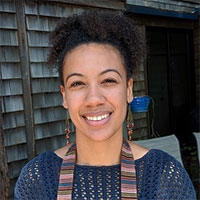
What steps can you take as a graduate student, lab leader or team member, teaching assistant or graduate student instructor, graduate student researcher, and mentor to peers and undergraduate students to promote diversity, equity, and inclusion at UCSC? This section will explore this topic.
An information interview is one that you conduct with someone working in a field for an institution or company that you want to consider working in and for. How do you conduct an informational interview? What questions should you ask to get the best information about what it’s like to do that job for that organization? How do you network to locate people to ask for an informational interview? This section will answer these questions.
Lorato Anderson is the Director of Diversity, Equity, and Inclusion in Graduate Studies at UC Santa Cruz. Her role centers on advancing initiatives for minoritized graduate student support across multiple campus-wide projects, as well as providing direct support to students, staff, faculty, and programs. Lorato graduated with a B.A. in Literature/Writing from UC San Diego and received her M.S. in Higher Education Administration and Policy from Northwestern University, where she researched and developed assessment models for English Language Learners and created multiple DEI programs that are still active today. She has extensive experience in grant writing, teaching, advising, assessment, and creating long-lasting research-backed programs to promote minoritized undergraduate and graduate student success.
Lorato has worked on campus for seven years and received the 2020 Outstanding Staff Achievement Award in Social Sciences; her previous roles include Graduate Program Advisor and Coordinator for Latin American and Latino Studies (LALS) and Politics, as well as Undergraduate Advisor for Psychology. She takes pride in incorporating social justice, as well as empathetic advising strategies and teaching pedagogies, in her work in advising, administration, and grant and program development.
Makeup Repeat Presentations: Proactive Diversity, Equity, and Inclusion, Informational Interview
Curating Your Digital Reputation
Lisa Nielsen, Senior Director of Marketing and Creative Services, University Relations
October 13, 1:00-2:30 p.m. | Humanities 2 and Social Sciences Building, Room 259, and Zoom
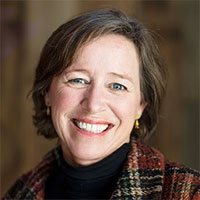
Your digital reputation refers to your presence on the internet, on social media platforms and on personal and worksite websites. Learn tips on how to distinguish yourself from the crowd and create a lasting impression in an evolving digital communications landscape.
Lisa Nielsen has over 25 years of design and marketing experience in the private sector and with non-profits. From working at Apple Computer as an Art Director to running her own firm in San Francisco for 15 years, she knows what it means to be a good communicator and marketer. From startups to fortune 500 clients, her adventures in marketing have added up to a depth of knowledge which she likes to share. Lisa has been with UC Santa Cruz for 12 years as the Marketing Director and oversees a creative team of writers, videographers, and designers.
Makeup Repeat Presentation: Curating Your Digital Reputation
Teaching Statement and Portfolio
Kendra Dority, Ph.D., Director for Graduate Student and Postdoc Professional Development, and Roxanna Villalobos, Ph.D., Education Specialist for Graduate Student and Postdoc Development, Teaching and Learning Center (TCL)
October 20, 1:00-2:45 p.m. | Humanities 2 and Social Sciences Building, Room 259, and Zoom
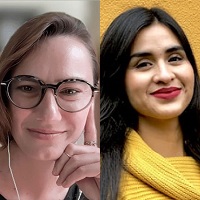
Gain tools and tips for effectively writing a teaching statement, a common document in faculty hiring and review processes and an opportunity to reflect on how your teaching supports student learning. We’ll also review how to select teaching portfolio materials that tell a compelling story of who you are as an educator.
Kendra Dority, Ph.D., has been an engaged member of the teaching and learning community at UC Santa Cruz since 2009, serving as a Teaching Fellow and Teaching Assistant in the Literature Department and as a Lecturer at Porter College before joining the Teaching and Learning Center (TLC) in 2017. With the TLC, she directs professional development opportunities for graduate students and postdocs in their roles as teachers and mentors, and enjoys uplifting the contributions of these educators to our campus community and beyond. She received her Ph.D. in Literature from UCSC.
Roxanna Villalobos, Ph.D., has been an engaged member of the teaching and learning community at UC Santa Cruz since 2017, serving as a Graduate Student Instructor and Teaching Assistant in the Sociology Department and as a Graduate Student Mentor through various mentoring programs. Roxanna joined the Teaching and Learning Center (TLC) in 2023 as an Educational Specialist after receiving her Ph.D. in Sociology and Latin American and Latino Studies from UC Santa Cruz. In this position, Roxanna develops and facilitates research-based professional development programs, workshops, and resources focused on equity-minded and inclusive teaching for graduate students and postdocs across all disciplines.
Makeup Repeat Presentation: Teaching Statement and Portfolio
Demonstrating Success: Creating an Equitable, Accessible, and Inclusive Academic Environment
Judith Estrada, Assistant Vice Chancellor, Office for Diversity, Equity, and Inclusion (ODEI)
October 20, 3:00-4:30 p.m. | Humanities 2 and Social Sciences Building, Room 259, and Zoom
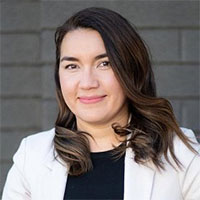
This session will review UC Santa Cruz and UC Berkeley’s Contributions To Diversity Statement Guidelines, rubrics, and assessment tools. Participants will engage each other in dialogue about their experiences in applying various pedagogical approaches, research frameworks, and community engagement initiatives that contribute to more equitable, accessible, and inclusive academic environments. The participants will leave with an understanding of how two universities evaluate statements of diversity and equity.
Judith Estrada (Ph.D., University of Illinois, Urbana-Champaign) is the assistant vice chancellor for the Office for Diversity, Equity, and Inclusion at UC Santa Cruz. Estrada publishes and presents nationally on the following themes: bicultural pedagogy, decolonizing methodologies, working across differences, pedagogy of solidarity, and critical bicultural pedagogy. Estrada is the author of Consuming ‘Dora the Explorer’ with a Critical Bicultural Lens (in Darder’s Culture & Power in the Classroom, 2012); Impacts of a Diné Decolonizing Pedagogy on Student Affairs Practitioners (in Davidson, C., & Waterman, S., eds., Indigenous Education Practices in Higher Education); and A Series of Reflections of Diné Elder Larry Emerson and His Indigenizing Impact on Our Participation in the Profession (in NASPA Journal).
Makeup Repeat Presentation: Demonstrating Success: Creating an Equitable, Accessible, and Inclusive Academic Environment
Conflict Resolution and Speaking Up to Bias
De Acker, Campus Ombuds, Office of Ombuds
October 27, 1:00-4:30 p.m. | Humanities 2 and Social Sciences Building, Room 259, and Zoom
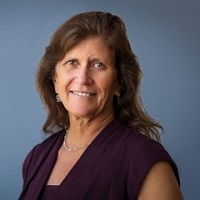
We will explore ways to identify when a conversation is becoming “crucial” before you walk into one. This interactive workshop will help you identify your own styles and how you can address conflict in high-stakes conversations more effectively. The goal is to develop strategies to meet specific challenges that may arise in your academic, work, and personal life.
This workshop will explore how to address bias when it is directed at you or someone else. We’ll review what bias is, how it shows up, and the impact it can have. We’ll discuss and practice ways to respond directly or as a bystander, and how to offer support. Participants will leave with a set of options for response, support, and resources to address incidents of bias.
De Acker comes to UC Santa Cruz with more than three decades of UC experience. She served as director of the UC Santa Barbara Women’s Center for 12 years before joining UC Merced to serve as the assistant dean of the School of Natural Sciences. After founding the campus’s first ombuds office, she went on to establish the UC Merced Office of Campus Climate, which coordinated campus diversity, equity and inclusion initiatives. De also served as a staff advisor to the UC Board of Regents from 2014-2016.
Makeup Repeat Presentations: Conflict Resolution, Speaking Up to Bias
Psychology of Writing
Andrea Seeger, Lecturer, Social Justice, Literature, and Writing, Oakes College
November 3, 1:00-2:45 p.m. | Kerr Hall, Room 61, and Zoom
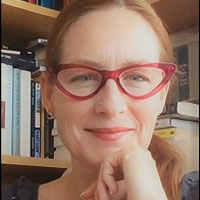
Sometimes we can be our severest writing critics and biggest hindrances to writing success. Learn how to overcome psychological barriers and start writing in this hands-on writing workshop!
Andrea Seeger received a bachelor’s degree in literature from UC Santa Cruz, master’s in English literature from the University of Colorado (CU) Boulder, and an all but dissertation in English from UC Berkeley. Andrea has been teaching literature, writing, and social justice for nearly 20 years. She has taught writing and rhetoric in the Program for Writing and Rhetoric at CU Boulder and literature at UC Berkeley. She currently teaches social justice at UCSC’s Oakes College and writing through UCSC’s Writing Program. She is also a lecturer at Cabrillo College, where she teaches English. Andrea is the former director of The Writing Center and of its VOCES Graduate Student Writing Center, one of the Hispanic-Serving Institution (HSI) Initiatives of the Graduating and Advancing New American Scholars (GANAS) Graduate Pathways program (Activity 6). Andrea is deeply committed to student-centered learning and equitable access to a quality education. Andrea’s scholarship focuses on the intersections of racial and gender formation in 20th-century American literature, and her work is deeply invested in social justice.
Makeup Repeat Presentation: Writing Psychology
Academic Publishing, Copyright, Open Access
Martha Stuit, Scholarly Communication Librarian, UCSC University Library
Erich van Rijn, Executive Director, University of California Press
November 3, 3:00-4:30 p.m. | Kerr Hall, Room 61, and Zoom
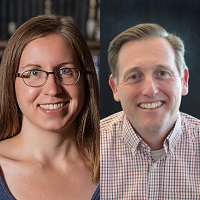
How do you choose a reputable academic journal to publish in? What are your copyrights? What is open access? Where do you find academic publishing support at UCSC beyond your program and department?
As scholarly communication librarian at the UCSC University Library, Martha Stuit provides author services, which covers theses and dissertations, publishing academic articles and books, open access, and copyright. She also serves as the library’s liaison to the Division of Graduate Studies. Prior to becoming a librarian, she was a journalist. Martha has an M.S. in information from the University of Michigan.
Erich van Rijn is executive director at the University of California Press, where he leads the press’s book and journal publishing operations. Erich has been with the University of California Press since 1997 and has held positions in marketing, sales, operations, and finance. Prior to joining the press he held positions in marketing at Oxford University Press and HarperCollins Publishers.
Makeup Repeat Presentation: Academic Publishing
WordPress Website Design
Jason Chafin, Senior Web Developer, University Relations
November 17, 1:00-2:30 p.m. | Humanities 2 and Social Sciences Building, Room 259, and Zoom
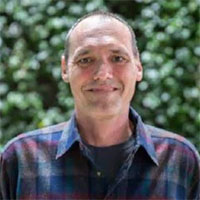
Professional websites can boost your reputation and aid your networking and job search. UCSC provides free access to WordPress (with several design templates) to faculty, postdoctoral scholars, and graduate students. Get design tips from Jason and get started using WordPress to make a blog or static website to showcase your graduate work!
Jason Chafin graduated from UC Santa Cruz in 1993 with a bachelor’s in environmental studies. He earned his master of environmental studies from The Evergreen State College in Olympia, WA, and spent over a decade as an environmental planner. He switched gears in 2010 and became a web developer, working primarily with WordPress. He’s been with University Relations as the senior web developer in the Communications and Marketing Department since 2017.
Makeup Repeat Presentation: WordPress Website Design
Listening, Mentoring, Coaching, Advising
Andrea Cohen, Director of Strategy and Chief of Staff, Division of Academic Affairs
November 17, 3:00-4:30 p.m. | Humanities 2 and Social Sciences Building, Room 259, and Zoom
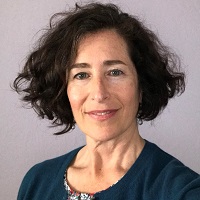
Listening to understand represents an equally important half of effective oral communication to the other half, delivery of the communication by spoken word. Listening well forms the essential communication base upon which to build the skills of mentoring, coaching, and advising. Listening well also aids your performance on a team and in any professional and personal relationship. Learn how to listen conscientiously and the differences between mentoring, coaching, and advising.
Andrea Cohen serves as director of strategy and chief of staff in the Division of Academic Affairs at UC Santa Cruz where she engages with strategic initiatives; manages recruitments, supports personnel, and guides employee development; centers DEIA goals; and conducts research and strategizes on divisional and campuswide projects. A trusted adviser to colleagues at all levels, Andrea develops project and implementation plans, facilitates groups through projects and change processes, offers workshops and training, participates on several boards, and was the founding chair of UCSC’s Campus Advisory Committee on the Status of Womxn (CACSW). Andrea earned a master’s in public administration (M.P.A.) from Villanova University in Philadelphia and a bachelor’s in geography from the University of Colorado Boulder.
Makeup Repeat Presentation: Listening, Mentoring, Coaching, Advising
Public Speaking
Bri McWhorter, Founder and CEO, Speaking Coach, Activate to Captivate
December 1, 1:00-4:30 p.m. | Humanities 2 and Social Sciences Building, Room 259, and Zoom
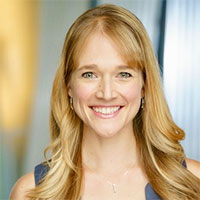
Every presentation is an opportunity to share your ideas and connect with your audience. In this interactive workshop, Bri will lead you through her program, W.A.V.E.®, where she will show you techniques to overcome nerves, use your voice effectively, and bring your content to life. Whether you are sharing a pitch about your work, speaking at a conference, or giving a job talk, she will share tools that you can use to impress and captivate your audience.
Bri McWhorter is the founder and CEO of Activate to Captivate, where she teaches communication techniques from an actor’s point of view. She specializes in public speaking, scientific communications, interview skills, and interpersonal communications. She has taught workshops at Fortune 500 companies, privately coached CEOs at nonprofits, and led certificate programs at top universities. She is the creator of W.A.V.E.®, a program where she teaches speakers how to overcome nerves, use body language, and rely on their voice to tell an engaging story. She has coached speakers for academic symposiums at various institutions, including UC Office of the President, UC Irvine, and UC Santa Barbara. She has a Master of Fine Arts in Acting from UC Irvine and a bachelor’s degree in theater and performance studies from UC Berkeley.
Makeup Repeat Presentation: Public Speaking
The Resume and CV, Interviewing and Negotiating the Job Offer
Thomas Rogers, Career Adviser and Instructor, Career Development, CSU Monterey Bay
December 8, 1:00-4:30 p.m. | Humanities 2 and Social Sciences Building, Room 259, and Zoom
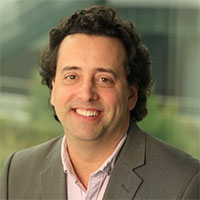
The first section focuses on tactics to help your resume or CV stand out and gain attention. Participants will learn to analyze a job description and incorporate easy-to-implement tips designed to frame experiences and skills in ways recruiters respond to. The session considers various resume and CV formats and how to determine the best one, and concludes with do’s & don’ts.
The second interactive section covers crucial interview preparation techniques, strategies for handling different interview formats, and how to approach those tricky questions. Participants will leave with the tools and confidence to ace their next interview! The salary negotiation module focuses on: 1) Know Your Value, 2) Know Your Target Salary and Benefits, 3) Know Your Strategy, and 4) Practice! Through role play and Q & A, participants will learn key resources and tangible strategies to steer this critical conversation.
Thomas J. Rogers has an M.A. in Human and Organizational Transformation and a B.A. in Psychology. A skillful career counselor, he has 20 years of advising, teaching, and mentoring experience. Thomas has worked closely with a wide variety of individuals, including college students, veterans, mid-career professionals, and people with disabilities. He is well-versed in adult learning theory and adept at creating transformative learning situations. Thomas lived and worked in China for three years with the Peace Corps and has worked for CSU Monterey Bay since 2011.
Makeup Repeat Presentations: Curriculum Vitae, Interviewing and Negotiating the Job Offer
Final Presentations, Certificates Awarded
Sonya Newlyn, Professional Development Coordinator, Graduate Division
December 15, 1:00-4:30 p.m. | Humanities 2 and Social Sciences Building, and Zoom
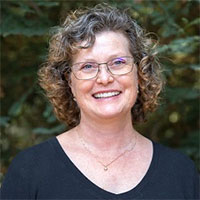
Members of the cohort will give a maximum three-minute presentation about their graduate student work. This meeting will conclude with presentations of the Graduate Student Professional Communication Certificates to those cohort members who meet the certificate requirements: attending all presentations (or missing no more than two presentations). Every presentation in the Friday series of the certificate program is repeated during fall quarter on a Tuesday, Wednesday, or Thursday at the Graduate Student Commons, Study Lounge 204, and via Zoom, so a necessary absence (for illness, attendance at an academic or professional conference, for example) from a Friday meeting of the program may be made up by attending the repeated presentation at the GSC (or via Zoom of that repeat event).
See Sonya Newlyn bio above for September 29 first meeting.
